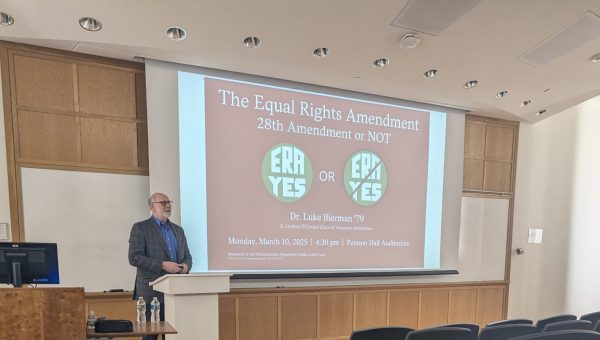Colgate Admission to Be Test-Optional for Three Years
The Colgate University Office of Admission recently announced that for three years standardized tests typically used to evaluate a prospective student, including the SAT and ACT, will be optional for applicants. Dean of Admission Tara Bubble explained that the decision is in response to the COVID-19 crisis and the complications that arose for students when testing dates were canceled. The University has decided to pilot this test-optional program for three years in order to collect holistic data regarding admissions and to decide if test-optional is a route Colgate could pursue in the long term.
President Brian Casey said that when Vice President for Admission and Financial Aid Gary Ross proposed extending the test-optional program, the decision was quite simple: the testing cycle is, in actuality, at least 24 months long when things like PSATs are considered.
“This was really simple… we knew we needed to be test-optional this year because the testing system collapsed. Gary Ross came to me and said that he had been speaking to many high school counselors who pointed out that it’s more than a one year cycle, that testing is at least a 24-month cycle if not longer,” Casey said. “[Because of] the level of distress that applicants were feeling because the cycle has collapsed… we [decided] would extend it for three years.”
This decision is also in line with Colgate’s push to make admissions more equitable and follows Colgate’s recent partnership with QuestBridge, a national nonprofit that pairs low-income, exceptional students with scholarships to top American colleges and universities. This partnership was announced in January 2020 and the class of 2025 will be the first to include QuestBridge Scholars. Casey said the decision will also account for issues of access and equity caused by the pandemic.
“Gary and I had been aware that very significant issues of equity would emerge, we were concerned that certain students might have access to safer testing sites than others and that just doesn’t seem fair. So we’ll see, we’ll see how it [goes], nothing’s the same,” Casey said.
Sophomore Kelsey Beausoleil is a tour guide in the Office of Admission and is excited about these changes as she believes it will help bring more diverse classes to Colgate.
“[Being test-optional] may allow for a more holistic view of the student as a person, rather than a statistic… It is time for the end of the College Board and something more inclusive for all socioeconomic classes,” Beausoleil said.
Beausoleil does recognize that many institutions, including Colgate, have historically relied on test scores to evaluate applicants, but believes that this change is for the better. Bubble acknowledged difficulties with this switch, but also pointed out that these are not normal circumstances for applicants.
“Extending the test-optional option for three years (2021, 2022 and 2023) provides applicants flexibility during a time when they are likely impacted by school and community changes beyond their control,” Bubble said.
Junior Bonnie Chin, who has also volunteered in Admission, appreciates the timing of this decision.
“The pandemic has been hard on a lot of people, and I don’t know if this test-optional decision is something that Admission has been toying with for a while or not, but this change seems like a silver lining in all this confusion. I don’t believe that admission exams are equitable or a fair measure of a student’s success, so I am proud of Colgate for taking this step,” Chin said.









